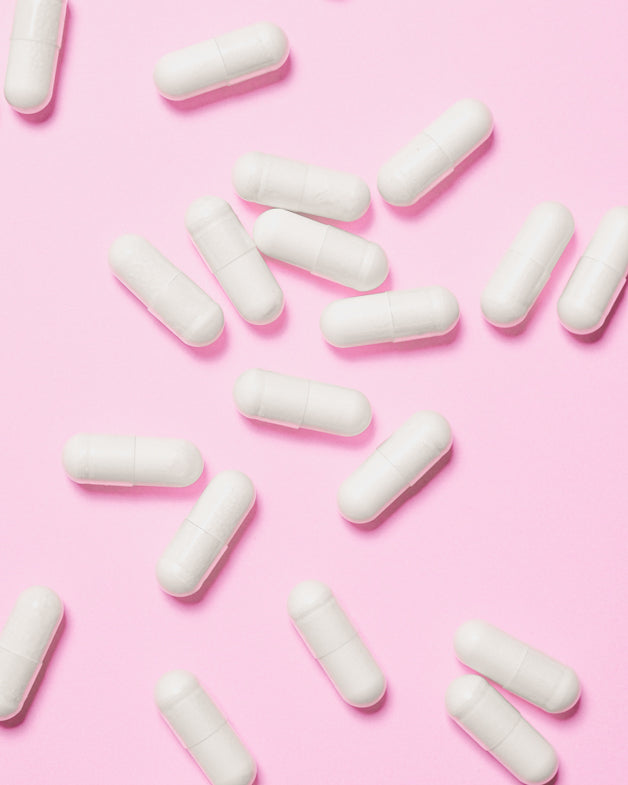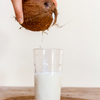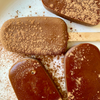The 5 Biggest Myths About Probiotics

As a gut health naturopath, i'll be the first be acknowledge there is a lot of buzz around the importance of taking probiotics with many claims surrounding of how they can support your health. Some of these claims are true and some are false; but it's really hard to know which is which.
To help you make more informed choices about your health and probiotic purchases, here is the truth (as the science says) to five of the biggest myths about probiotics.
Myth 1: Probiotics stay in your gut
Truth: Research shows that NO consumed form of probiotic will permanently colonise your gut.
Studies have proven that probiotics do not stay in your gut long term, One study confirmed this when testing healthy humans and the 12 day consumption of a whey drink fermented with Lactobacillus rhamnosus GG. Stool samples were collected before, during, and after consumption. What they found was that L. rhamnosus GG-like colonies were detected in both stool and colonic biopsy samples.
However biopsy (looking at the gut mucosa/wall) showed that their attachment to the wall was temporary and remained merely over 1 week after discontinuation of GG use (1). In short, probiotics will have an effective but transient action.
The transient nature of probiotics is also why, when I do gut testing in my Melbourne clinic, that after discontinuation of probiotics for after 1+ weeks, we can assess the microbiome knowing that we are picking up on your indigenous bacteria and not supplement form.
Myth 2: You can't take probiotics at the same time as antibiotics
Truth: Research shows that use of probiotics with antibiotics decrease antibiotic-related side effects and reduces antibiotic associated damage to your gut bugs.
A common side effect is antibiotic-associated diarrhoea (AAD). ADD occurs in 11-40% of children between the initiation of antibiotics and up to 2 months after stopping treatment. Studies support that there is a reduction in development of ADD if treated with probiotics, suggesting they are of benefit. In order of most evidence, strains that have evidence for their preventive effects include Saccharomyces boulardii, Lactobacillus GG, and the combination of Bifidobacterium lactis and Streptococcus thermophilus (2).
Important: Initially it was thought you have to dose 2-3 hours away from the antibiotic, but research if coming out to suggest you can take them at the same time as they are metabolised differently in the body
Myth 3: All probiotics are the same
Truth: Species and strain have different roles and actions.
There is a tendency to believe that bacteria of the same species act the same as each other e.g. Lactobacillus acidophillus NCFM is the same as Lactobacillus acidophillus CUL 21 . Companies that sell products that have not been studied or are using studies performed with different strains to formulate their products are particularly guilty of this. There are many studies that have compared the composition, characteristics, and physiological properties of bacteria, and have shown there are significant strain or family-specific differences (3).
For example:
- The importance of species. Bifidobacterium infantis 35624 reduces symptoms of Irritable Bowel Syndrome (IBS) while Lactobacillus salivarius UCC4331 is not effective in symptom reduction in IBS (4).
- The importance of species. Bifidobacterium lactis Bb12 can improve constipation of unknown origins in healthy patients (5) where as Lactobacillus fermentum VRI-003 can improve constipation due to IBS.
- The importance of strain. Two Lactobacillus rhamnosus strains compared in treatment of viral gastroenteritis; Lactobacillus rhamnosus GG versus Lactobacillus rhamnosus Lactophilus. On day two of treatment only After to only 19% of patients in LGG group had diarrhoea vs 64% of subjects in Lactophilus group (6).
The name of the bacteria does matter.
Myth 4: Probiotic supplements are better than fermented foods
Truth: Fermented foods have the ability to contain effective strains and adequate numbers for therapeutic effects.
For example there are several studies that successfully show yoghurt to have a therapeutic effect for several conditions or symptoms:
- Lactobacillus GG yoghurt reduced the side effects from the antibiotic erythromycin associated including diarrhoea, abdominal distress, stomach pain and flatulence (7).
- Fermented milk-based probiotic preparations have be shown to improve Helicobacter pylori eradication rates by approximately 5-15% (8).
- A threefold decrease in vulvovaginal candida infections was seen when patients consumed 240g of yogurt containing Lactobacillus acidophilus (9).
Fermented food can also help support your sugar cravings. Learn more about the gut bug and sugar connection in my freebie.
Myth: 5: You must take probiotics away from food
Truth: Research supports improved bacterial survival through upper gastrointestinal tract when taken with a meal or dairy or grain-based (10).
Milk has also been documented for the delivery of probiotics. The delivery of Lactobacillus species showed an increase in colony numbers after administration through milk. The use of milk was further studied by the possible use of Caseinomacropeptide in milk to deliver Bifidobacterium lactis.
Another study found that chocolate coatings for the protection and delivery of Lactobacillus helveticus and Bifidobacterium longum was helpful in survival rates leading to the belief that chocolate can be used to protect and deliver probiotics (11). Yes, you read that correctly.
Final thoughts
Think critically when companies and individuals are trying to convince you of a product's function and efficacy. If the product doesn't specify the strain, or can't back up their claim with research, this is a BIG red flag.
If wanting to find the right probiotic or food to support your gut and specific health needs and have found it all a bit overwhelming, it may be time to team up with a qualified practitioner to ensure an effective strain and dose is being taken.
-
Posted in
Gut Health







